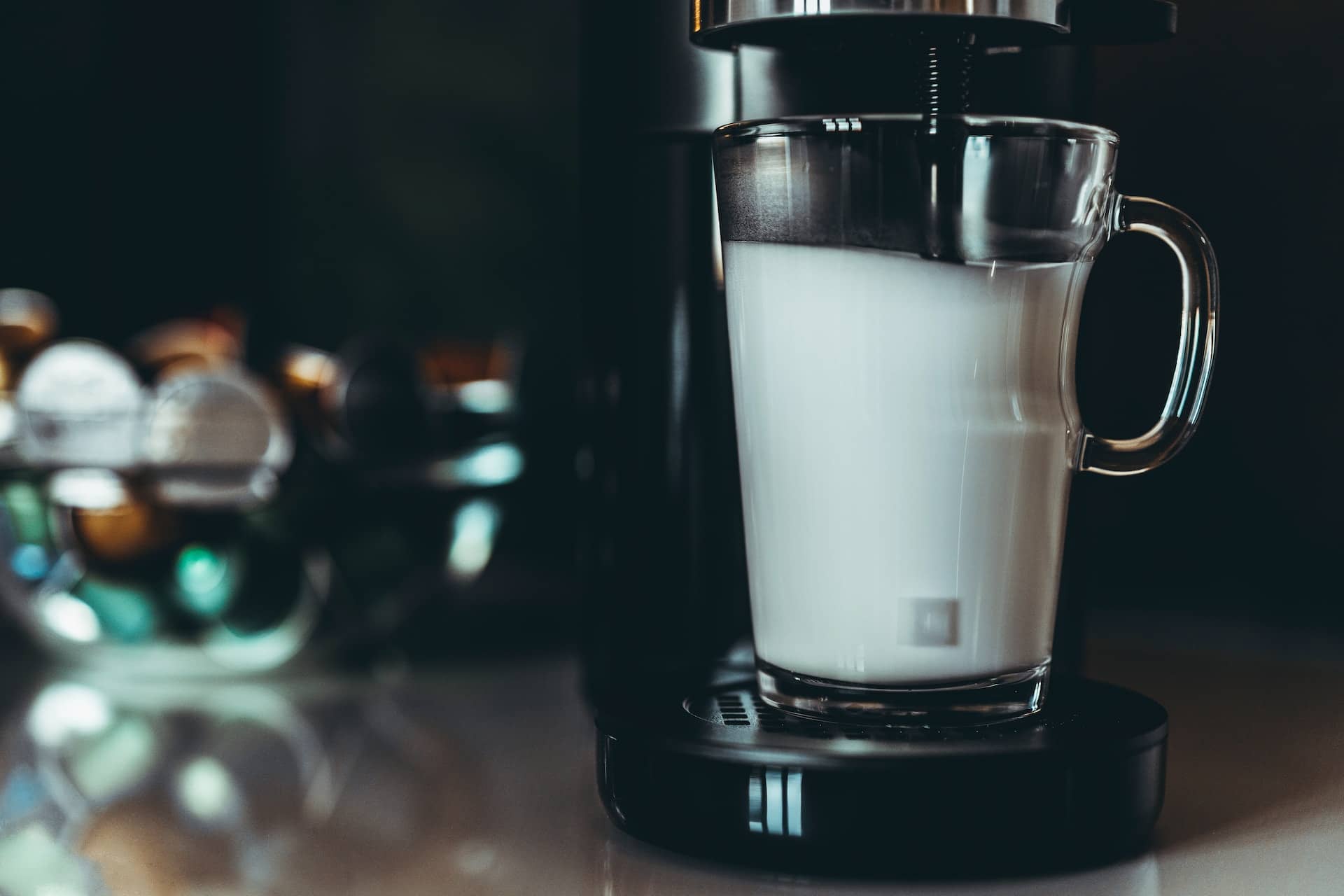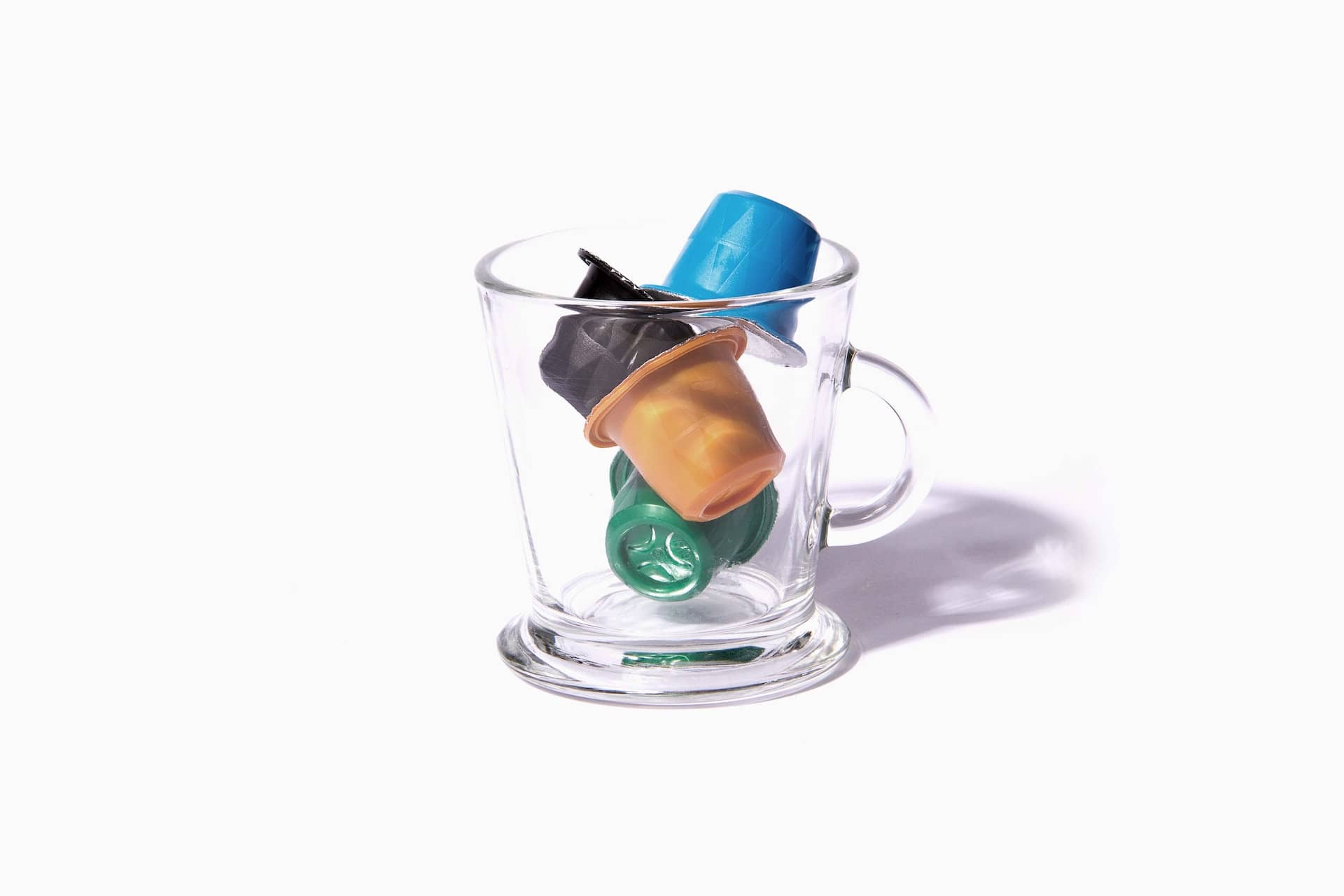If you adore espresso, it's likely that the soothing sound of a Nespresso machine marks the start of your day. This handy device offers an easily accessible method for kickstarting your day, but it mandates periodic maintenance to continuously produce the ideal coffee. Part of this care involves descaling your Nespresso machine, however, certain safety considerations may arise.
In this article, we'll cover whether it's safe to drink from a Nespresso machine immediately after descaling. And if the remnants of the descaling solution can harm your health.
Yes, it is safe to use your Nespresso machine after descaling. Descaling solution may be made of citric acid, lactic acid, or vinegar. All natural and safe to consume. For the best-tasting coffee, however, ensure that the machine has been rinsed thoroughly to remove any leftover descaling solution.
Let's dive into this question and give you concrete answers to put your worries to rest.
Related: How to Open a Jammed Nespresso Machine
Is it Safe to Drink from Nespresso After Descaling?
If you're using Official Nespresso Descaler…
Many people choose to use the official Nespresso descaler (Buy on Amazon here). This product has lactic acid as the main working ingredient. Your body produces lactic acid naturally, especially during your intense workouts or exercise sessions. It’s also vital when it comes to the production of certain foods and drinks. Bacteria produce several things you eat and drink by creating lactic acid as part of the fermentation process, including beer, cheese, sauerkraut, and yogurt.
Lactic acid is a carboxylic acid that is considered generally non-toxic and safe. It’s a very popular ingredient in disinfection and cleaning products because it’s extremely effective and has eco-conscious properties. Also, the EPA (Environmental Protection Agency) has recognized lactic acid as a Safer Choice Product, and this is a certification given to products that are safe for human health and the environment.
But what does it mean when you're using a descaling solution with lactic acid? When you use it in your Nespresso as a descaler, it works very well to break down limescale buildup from hard water without damaging the more delicate components of the machine.
However, despite the fact that lactic acid is very safe, you still want to make a point to rinse your Nespresso thoroughly after you descale it. Doing so will ensure that there is no residue stuck somewhere that could negatively impact how your coffee tastes. So, with a good rinse when you finish descaling it, your Nespresso machine will be safe and ready to brew your favorite espresso, just the way you like it.
Related: Read: How often you should descale your Nespresso machine to keep it in top shape.
If You’re Using an Off Brand Descaler…

Photo by Dekler Ph on Unsplash
While Nespresso’s official descaler contains lactic acid, you can get off brand descalers that use citric acid as the main ingredient. This is another natural compound, and as you may have guessed from the name, you commonly find it in citrus fruits like limes, lemons, and oranges.
If you’re someone who loves coffee but wants a more cost-effective way to descale your machine, powdered citric acid allows you to make your own solution. As one Reddit user said, “I use powdered citric acid to make my own descaling solution – it's much more cost effective. If you're concerned about what's going into your machine, you might prefer doing the same. That way you know it's just citric acid – which occurs naturally in citrus fruits and is similarly produced in the body (the Krebs cycle is also known as the citric acid cycle).” The Krebs or citric acid cycle, is a key part of cellular respiration inside our bodies. During this cycle, your body produces energy in the form of adenosine triphosphate (ATP).
When you use citric acid as a descaler, it’s very effective for dissolving hard water mineral buildup inside your Nespresso, very similar to how lactic acid works. However, even though it’s safe, it’s a good idea to remember to rinse your machine at least once or twice after you finish descaling it to remove any residue. This ensures that you don’t compromise on how your machine works or the taste of your favorite coffee.
If You’re Using Vinegar to Descale…
Vinegar, particularly white vinegar, is another popular choice for homemade descaling solutions since it’s available in most grocery stores and it has a higher acidity level, which is effective in dissolving mineral deposits. Vinegar is a common household item, and it is safe for human consumption in small amounts or when you dilute it properly.
While it’s not recommended you drink large amounts of vinegar due to its potential to erode your tooth enamel and cause damage to the tissue of your esophagus, the amount you could accidentally ingest after descaling your Nespresso is tiny, especially considering you dilute it with a lot of water.
As noted by the University of Chicago Medicine, vinegar, especially apple cider vinegar, is often touted for various health benefits, but in the context of descaling, it's the acidic properties that do most of the work. Its ability to break down mineral build-ups in your Nespresso machine is what makes it a great descaling agent.
However, one drawback of using vinegar is its strong smell and taste, which can temporarily linger in your machine even after thorough rinsing. The first few cups of coffee brewed post-descaling might carry a faint vinegar taste. This taste should fade with continued use as the vinegar residue is gradually flushed out.
I know that I personally like to use vinegar in my cleaning products or even a small amount in my laundry to deodorize, but it does have a very distinctive scent and taste. When I use it to descale or clean any appliances, I rinse them three or four times with hot water to ensure I get rid of the taste. This way, I don’t usually have that aftertaste in the first cup of coffee after I descale it.
Related: How to Descale a Keurig with Vinegar
What to Do if Your Coffee Still Tastes Like Descaler
Occasionally, you might find that your coffee retains a hint of the descaler even after you've rinsed your machine post-descaling. However, this is very common and something you can easily address.
If your coffee still tastes like a descaler, you should keep running plain water brew cycles through the machine. It might take more cycles than you initially thought to completely clear out the descaling solution. As I said, I start with three or four and run more cycles if I can still taste the vinegar.
In addition to running more water cycles, you can also add a small amount of baking soda to the finished brew. Baking soda is alkaline and can help neutralize the acidity of the remaining descaler. If the taste changes or becomes less acidic, it might indicate that some descaler residue was still present.
FAQ

Photo by KOUS9 STUDIO on Unsplash
1. Is it safe to drink coffee immediately after descaling your Nespresso machine?
Yes, it is safe to drink coffee after descaling your machine. However, it's crucial to rinse your machine thoroughly after descaling to remove any leftover descaling solution.
2. Can you use homemade descaling solutions for your Nespresso?
Yes, homemade descalers like citric acid or vinegar can effectively descale your Nespresso machine. It is important to note that each solution might require a different rinse cycle and may temporarily change the taste of your coffee.
3. Can descaling your Nespresso machine improve the taste of your coffee?
Yes, descaling is a key maintenance step to ensure your coffee tastes its best. It removes mineral deposits and other grime that can negatively impact the performance of your machine and the flavor of your coffee over time.
